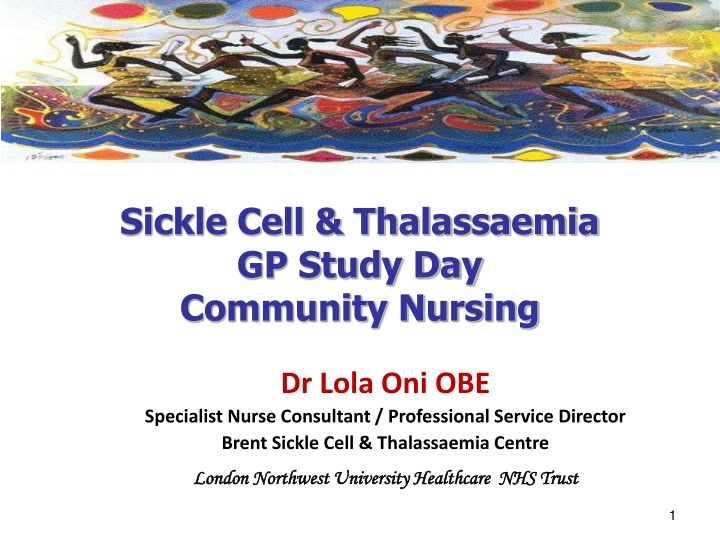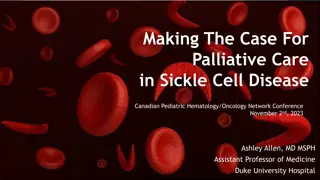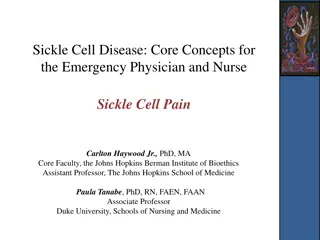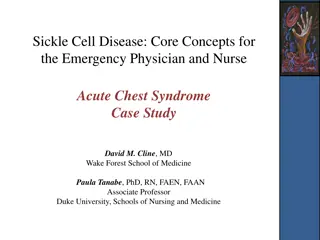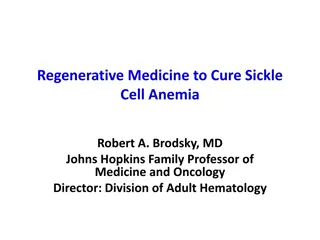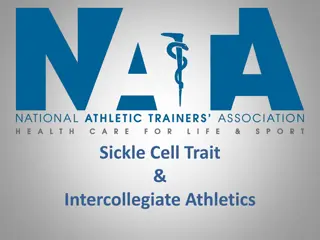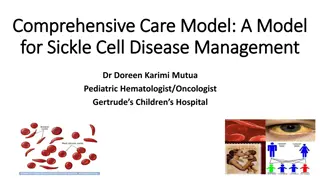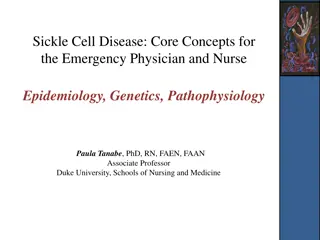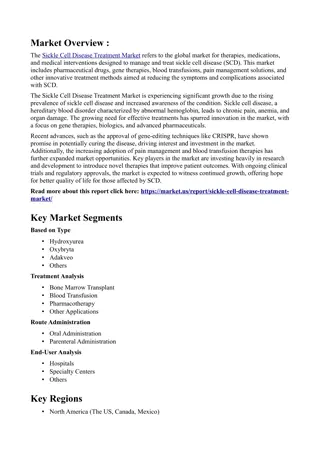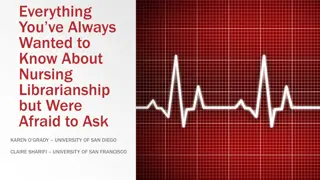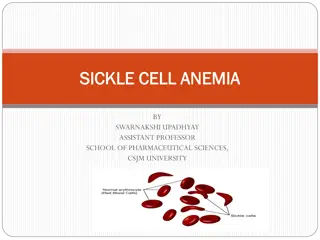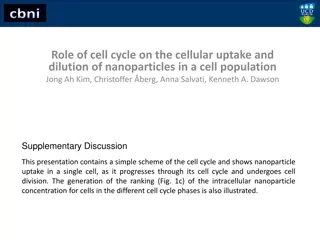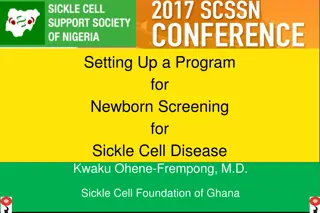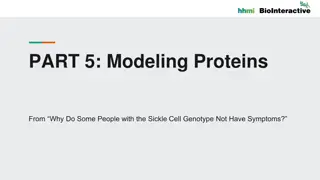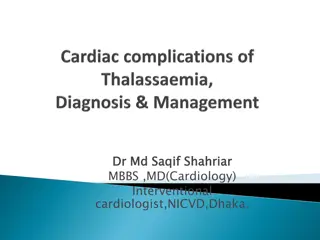Community Specialist Nursing Care for Sickle Cell & Thalassaemia Patients
Promoting understanding of health & social challenges faced by individuals living with sickle cell disease and thalassaemia major. Discusses referral & care pathways, role of specialist nurses, and resources for primary care support. Emphasizes the importance of managing psychological impact, stigma, family dynamics, and frequent health service contacts.
Download Presentation

Please find below an Image/Link to download the presentation.
The content on the website is provided AS IS for your information and personal use only. It may not be sold, licensed, or shared on other websites without obtaining consent from the author.If you encounter any issues during the download, it is possible that the publisher has removed the file from their server.
You are allowed to download the files provided on this website for personal or commercial use, subject to the condition that they are used lawfully. All files are the property of their respective owners.
The content on the website is provided AS IS for your information and personal use only. It may not be sold, licensed, or shared on other websites without obtaining consent from the author.
E N D
Presentation Transcript
Sickle Cell & Thalassaemia GP Study Day Community Nursing Dr Lola Oni OBE Specialist Nurse Consultant / Professional Service Director Brent Sickle Cell & Thalassaemia Centre London Northwest University Healthcare NHS Trust London Northwest University Healthcare NHS Trust 1
Aim & Objectives To promote an understanding of Community Specialist Nursing Care: Health & social challenges of living with sickle and thalassaemia Referral and care pathways Role of the sickle & thalassaemia specialist community nurse Resources to support primary care 2
Health & social challenges of living with sickle cell disease Chronic unpredictable life long disease with early onset of signs & symptoms Pain and hospitalisation Education Psychological impact stigma, labelling Social impact Family dynamics Frequent contact with health services 3
Health & social challenges of living with Thalassaemia Major Chronic life long disease with early onset for medical interventions and treatment Regular blood transfusions Chelation therapy Risk of complications Psychological impact stigma, labelling Social impact education, employment Family dynamics & relationships Frequent contact with health services 4
Care pathway General patient population Preconception Antenatal Patients with disease states Contact the local community specialist service via the generic email i.e.: Brent & Harrow - LNWH-tr.BrentSickleThal@nhs.net Hammersmith & Fulham - CLCH.sicklethal@nhs.net Hounslow - Sonia.ambo@nhs.net
Role of the sickle & thalassaemia specialist community nurse Counselling of screen positive pregnant women and partners [national screening programme] Management of identified newborn babies with carrier and disease states [national newborn screening programme] (store disease & carrier results) Community care and support of children & adults Raising public awareness Education of health, allied & other professionals Advocacy / policy/ audit/ research
Referral to community Centre Written referral to community team Provide patients biographical details including contact number (s) Brief summary of reason for referral Copy of laboratory report (if relevant) Social issues to be taken into consideration Ensure patient is aware of referral
Acute & Community Specialist Teams in NW Sector Contact details of key specialist team members are listed in the GP pack that is being updated and will be available via the Haemoglobinopathy Network [via Brent Centre website] shortly www.sickle-thal.nhs.uk
Resources to support primary care Integrated Multidisciplinary team [acute & community doctors, nurses, psychologists, social worker Specialist community Centre Educational programmes & materials for professionals Patient education programmes Specialist websites
Useful Websites www.sickle-thal.nwlh.nhs.uk www.sct-screening.nhs.uk www.haemoglobin.org.uk www.ukts.org www.sicklecellsociety.org www.ncepod.org.uk
National Service Proposals NHS England proposes from 2019 development of a coordinated approach to Haemoglobinopathy Services provision nationally: Local Haems Team (LHT) Specialist Haemoglobinopathy Teams (SHT) Haems Coordinating Centre (HCC) 10 Sickle & 4 thalassaemia National Haems Panel
